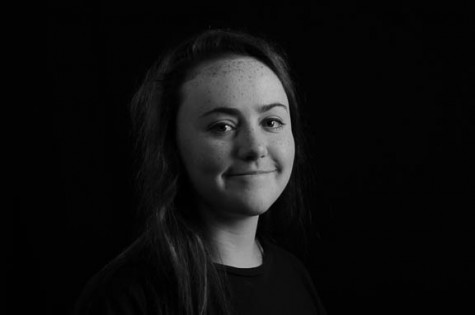Not once has he dressed up in a costume, attended a Halloween party or ran door to door begging for candy. For Nikolas Shengelia, sophomore, Oct. 31 is a normal day on the calendar. Being a Russian Orthodox Christian, Shengelia, sophomore, is not allowed to celebrate the holiday even if he wants to.
According to Shengelia and other Orthodox Christians, Halloween represents something much darker than candy and costumes. His church, St. Basil the Great, thinks Halloween, or “All Hallows Eve” as they refer to it, is the celebration of Satan and therefore should not be acknowledged.
“We don’t believe in celebrating feasts that are dedicated to evil, to the devil,” Father Martin Swanson, priest of St. Basil the Great, said. “I don’t think most people think [Halloween is evil]. I think that Halloween is something most people have forgotten the origins of, but it comes out of witchcraft. We don’t celebrate evil spirits.”
Shengelia’s religion does not recognize the holiday much to begin with.
“It doesn’t really affect me,” Shengelia said. “I don’t understand the concept of Halloween in the first place. I think it is kind of pointless. [My belief] has to do with the environment I grew up in. I just do the same thing I’ve always done.”
As a child, Shengelia did not always see the senselessness of Halloween, but he still found ways to enjoy the day.
“Every little kid when they are in elementary school wants to get candy and go around in a costume,” Shengelia said. “At the time, I didn’t really feel like I was missing out because my mom would take me out of school that day and do something fun with me as an alternative. We would go to the store and look at toys or go to the park, just have a family day.”
Shengelia’s church also holds what they call an Alternative Trick or Treat party, or A.T.T., on Halloween. According to Father Martin, kids get together to play games and dress up as saints or other holy people.
Halloween is not the only difference that sets Shengelia’s religion apart. While Russian Orthodox Christians believe most of the same concepts surrounding Jesus as other Christians, they follow the Old Julian calendar, which is 13 days ahead of the normal one. This means they celebrate Christmas Jan. 7 instead of Dec. 25.
Shengelia’s religion also requires him to fast, meaning he cannot eat meat or dairy on Wednesdays and Fridays, as well as during several two-to-six week periods throughout the year, like during the weeks leading up to Christmas and Easter. According to Shengelia, this is probably the biggest restriction his religion places on him, although one of the most beneficial.
“It signifies the struggle Jesus went through,” Shengelia said. “It’s just a symbolic thing. We’re supposed to become more spiritually connected and get closer to God.”
Father Martin said this idea of fasting originated in Biblical times when Christ told his disciples they could learn to serve him better by praying and fasting. The Orthodox Christians have thus fasted since Christ commanded them to. Father Martin describes it as both a spiritual discipline and aiding tool.
“It’s difficult to pay attention to prayer and spiritual things if you’re full of rich food and strong drink,” Father Martin said. “It’s like eating a huge lunch at school and then going back to class and not being able to really focus, being tired, being bogged down. That’s the reason we fast; so we’re more attentive and spiritually alert.”
Occasionally Shengelia finds it difficult to adhere to the rules revolving around fasting, but generally he follows them.
“My mom understands that sometimes growing kids need to have meat and dairy, so sometimes we make exceptions,” Shengelia said. “But for the most part we are pretty strict followers.”
Shengelia tries to focus on the positive effects this diet has on him.
“It opens you up to a new variety of things,” Shengelia said. “A new variety of foods, and just a different way of looking at things in general. Overall, it’s a good experience.”
Tom Florent, sophomore and friend of Shengelia, agreed the fasting is more positive than negative for Shengelia.
“He never really complains about it,” Florent said. “I think it’s cool for him. It makes him different and that’s great.”
Shengelia is aware some people might view his religion as weird or different, but like Florent, he said they usually respect it.
“[His religion] isn’t necessarily weird, it’s just the things he believes in are different,” Florent said. “It doesn’t really make a difference in the matter of how he acts toward [his friends].”
With his friendships unaffected, Shengelia has become comfortable with the differences the church places on his life.
“People might not see [my religion] as a social normal but it’s just what I’ve always done,” Shengelia said. “[My religion] is a good role that I keep in my life.”
Want more information about the Russian Orthodox Christian church? Click here.










